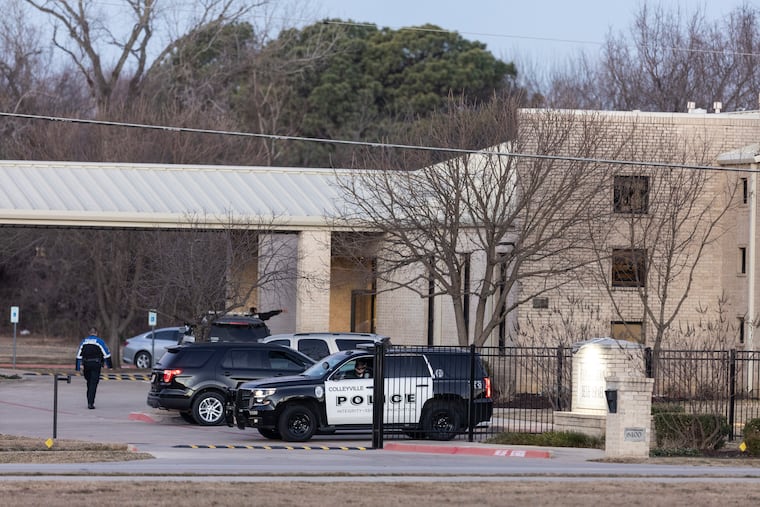After the Texas synagogue attack, we need a renewed focus on the roots of anti-Jewish violence | Opinion
Anti-Semitism is a confounding variable among rising numbers of hate crimes in the United States, writes Zev Eleff. We need to better understand the indigenous character of anti-Jewishness.

The Saturday terrorist attack on Beth Israel Congregation in Colleyville, Texas, is the latest high-profile case of anti-Semitism in the United States. It is reasonable to draw a line from the 2018 massacre at the Tree of Life Synagogue in Pittsburgh to the deadly shooting on the Chabad of Poway in California the following year. From gruesome attacks later that same year in Jersey City, N.J., to the most recent hostage situation outside of Dallas.
How can we stymie the trend?
Community leaders are calling for improved security at synagogues and other Jewish institutions. In prior instances, policymakers have recommended increased education about anti-Semitism in our schools and elsewhere. The curriculum for these sorts of initiatives often centers on the Holocaust. Many view teaching about the Nazi terror against Jews as the primary intervention to combat anti-Semitism. The Holocaust is also the starting point to address other world genocides and human atrocities.
» READ MORE: For me, Hanukkah has been a symbol of freedom. This year, I’m thinking about anti-Semitism. | Opinion
This is the case at Gratz College in Melrose Park. Gratz is the oldest independent Jewish college in the United States and home to the world’s largest graduate program in Holocaust and genocide studies. As president, I take tremendous pride in our faculty and students who engage in very challenging and disturbing subjects. They do it because there is much wisdom to be gleaned and lessons to be imparted.
There is also recognition that the curriculum around anti-Jewish violence requires expansion. We need to better understand the indigenous character of anti-Jewishness. There is now more attention paid than ever to the history of American anti-Semitism. Until a decade or so ago, this was a literature that interested readers could master in a matter of weeks or months. One fellow American Jewish historian, Britt Tevis, recently wrote about the “handful of scholars [who] directed their attention to the subject” before the mid-1990s.
Since then, the field has grown. I have been moved by the number of important works that focus on what is “American” about American anti-Semitism. A new generation of scholarship places into American context Peter Stuyvesant’s bullying of Jews in colonial New Amsterdam and Ulysses S. Grant’s expulsion of “Jews as a class” from his Civil War encampment. It examines local forces in limiting Jewish enrollment in colleges, vilifying Jews during Prohibition, and crafting legislation that primarily prevented Jewish immigrants from settling to the United States in the 1920s.
» READ MORE: As anti-Semitism rises, Philadelphia must find new ways to promote community and civility | Opinion
Our improved understanding of anti-Semitism in the United States also shows the complexities of identity in the American context, going beyond individual bias and hate to bigger societal problems. And it seems to me that anti-Jewish sentiment can be found on both sides of the political aisle.
Anti-Semitism is a confounding variable among rising numbers of hate crimes in the United States, much of which centers on skin color and sexuality. Anti-Semitism challenges the simple explanation of hate. The creation of a so-called tri-faith America — denoting a shared Judeo-Christian brotherhood between Protestants, Catholics, and Jews — in the post-World War II period make contemporary anti-Semitism so startling. It has helped raise awareness of the many Jews of color and renewed efforts to disentangle anti-Semitism from anti-Zionism.
There is much to unpack about the hostage situation that unfolded last weekend at Beth Israel Congregation. Foremost, Americans of all stripes ought to be grateful to authorities and the various rescue teams for avoiding mass casualties. It is also an opportunity to consider American anti-Semitism at fuller depth. This ought not diminish the importance of the Holocaust and the histories of violence against Jews in other regions.
So long as hate is not a scarce resource in the United States, neither should education in all its myriad forms.
Zev Eleff is the president of Gratz College and a historian of American Jewish life.